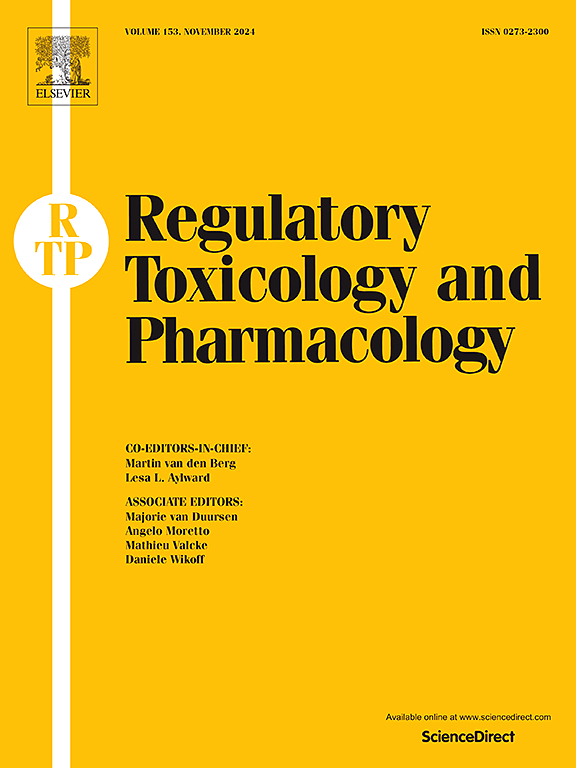Contributions of the joint FAO/WHO expert committee on food additives to international food safety: celebrating the 100th meeting of the committee
IF 3.5
4区 医学
Q1 MEDICINE, LEGAL
引用次数: 0
Abstract
The Joint FAO/WHO Expert Committee on Food Additives (JECFA) is an international scientific committee that carries out safety and risk assessments on substances that are intended to be added to food or may be present in food. It advises the Codex Alimentarius Commission and the member countries of the Food and Agricultural Organization and the World Health Organization. In 2025, JECFA has its 100th meeting. This paper reviews the work of JECFA since its inception in 1956. The Committee has evaluated over 660 food additives, 105 enzymes, 2500 flavourings, 11 groups of natural toxicants, 12 metals, 25 groups of synthetic chemical contaminants, and residues of 115 veterinary drugs. The Committee has made major contributions internationally on risk assessment methodology for food safety, including the setting of health-based guidance values for chemicals in food, the evaluation of genotoxic and carcinogenic contaminants in food, benchmark dose analysis, use of body burden comparisons, and global approaches to dietary exposure assessment. JECFA advice is independent and based on objective, state-of-the-science assessment of the evidence. Its advice and evaluations are a freely available online resource and play a pivotal role in ensuring the protection of consumer health and enabling the international trade of safe food.

粮农组织/世卫组织食品添加剂联合专家委员会对国际食品安全的贡献:庆祝委员会第100次会议
粮农组织/世卫组织食品添加剂联合专家委员会(JECFA)是一个国际科学委员会,负责对拟添加到食品中或可能存在于食品中的物质进行安全和风险评估。它向食品法典委员会以及粮食及农业组织和世界卫生组织成员国提供咨询意见。2025年,联合专家委员会将举行第100次会议。本文回顾了JECFA自1956年成立以来的工作。委员会评估了660多种食品添加剂、105种酶、2500种调味剂、11类天然毒物、12种金属、25类合成化学污染物和115种兽药的残留物。委员会在国际上对食品安全风险评估方法作出了重大贡献,包括为食品中的化学品制定基于健康的指导值、评估食品中的遗传毒性和致癌污染物、基准剂量分析、使用身体负担比较以及全球膳食接触评估方法。联合专家委员会的建议是独立的,并基于对证据的客观、最先进的评估。它的咨询意见和评价是免费提供的在线资源,在确保保护消费者健康和促进安全食品的国际贸易方面发挥着关键作用。
本文章由计算机程序翻译,如有差异,请以英文原文为准。
求助全文
约1分钟内获得全文
求助全文
来源期刊
CiteScore
6.70
自引率
8.80%
发文量
147
审稿时长
58 days
期刊介绍:
Regulatory Toxicology and Pharmacology publishes peer reviewed articles that involve the generation, evaluation, and interpretation of experimental animal and human data that are of direct importance and relevance for regulatory authorities with respect to toxicological and pharmacological regulations in society. All peer-reviewed articles that are published should be devoted to improve the protection of human health and environment. Reviews and discussions are welcomed that address legal and/or regulatory decisions with respect to risk assessment and management of toxicological and pharmacological compounds on a scientific basis. It addresses an international readership of scientists, risk assessors and managers, and other professionals active in the field of human and environmental health.
Types of peer-reviewed articles published:
-Original research articles of relevance for regulatory aspects covering aspects including, but not limited to:
1.Factors influencing human sensitivity
2.Exposure science related to risk assessment
3.Alternative toxicological test methods
4.Frameworks for evaluation and integration of data in regulatory evaluations
5.Harmonization across regulatory agencies
6.Read-across methods and evaluations
-Contemporary Reviews on policy related Research issues
-Letters to the Editor
-Guest Editorials (by Invitation)

 求助内容:
求助内容: 应助结果提醒方式:
应助结果提醒方式:


